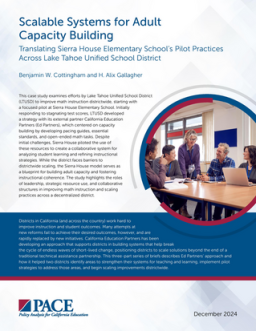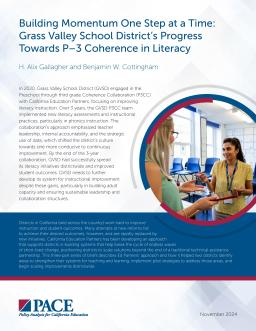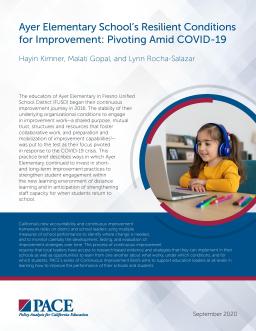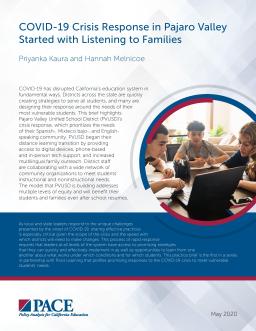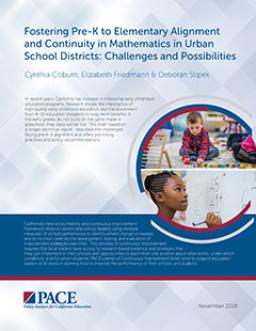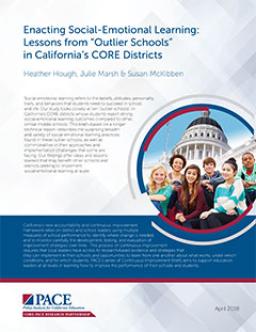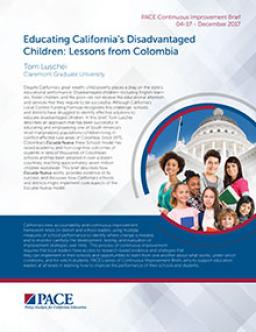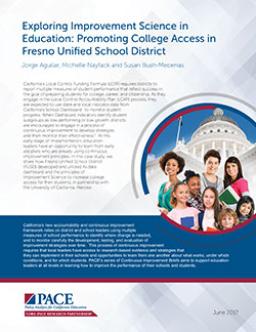Summary
Summary
Summary
Summary
This brief discusses how the Pajaro Valley Unified School District (PVUSD) in California is addressing the challenges of COVID-19 through family engagement and instructional access for English learners. The district has a history of serving all students through bilingual programming and a whole-child approach, and over 40% of its population are classified as English learners. PVUSD is a member of the national League of Innovative Schools and is known for its inclusive, data-driven decision-making.
Summary
Summary
This study explores ten "outlier schools" in California's CORE districts that have strong social-emotional learning outcomes. The brief and infographic summarize the various practices found in these schools and the common implementation challenges faced. The findings offer lessons that can help other schools and districts implement social-emotional learning at scale.
